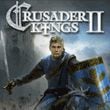Below you’ll find lot of advices and suggestions which should make your decision easier.
So, start from the fact that you could play only Christian rulers.
It’s wider described in the chapterHeredity.
Also choice of a region affects throw in of play greatly.
Count
Countis a worst situated from all available characters.
In other words: monarchs anddukescan have bodyguards only if they arecountssimultaneously.
Counties produce quite big profit and estates of higher level (duches, kingdoms and empires) almost nothing.
That’s why every monarch has at least one county.
Countsare a good choice for beginners.
Not much responsibilities let you learn the game in calm way.
Armed attacks won’t succeed: the sovereign can crush you easily.
The basic problem during playing as acountis his small meaning in the world.
Little amount of army and moneys excludes an expansion and lack of estates, spreading your authority.
Counts for beginners:
Scottish, French, Burgundian, Scandinavian.
Counts for advanced players:
German, from east Europe and Balkans.
Counts for experts:
Spanish, from southern Italy and Byzantium.
Duke
Dukehas a domain consisting of few counties which all together are calledduchy.
Most ofdukesare subordinate to some monarch, but it isn’t usually a problem.
Duchy’s lord has to care about subject’s trust, without them he is no one.
He can rule only thanks to his subordinates likecounts,mayorsandbishopsetc.
Preserving peace in your country is a very important part of the game.

Keeping balance between internal and external politics is a key to the success.
If you provide a peace in your domain, you may count on expanding it.
You have no influence on that, it depends on your relation with the sovereign and the law.
you might read how to handle this in a chapterRiding on a Top: Duke.
Dukes for beginners:
French, Polish, from Gaul and Scandinavia.
Dukes for advanced players:
German, from eastern Europe, Italy, British Islands and Balkans.
Dukes for experts:
Spanish, from south Italy and Byzantium.
King
Kingsare rather the most important characters in the game.
There are alsoemperorswho are able to control monarchs indeed, but their power is rather weak.
King’s possibilities are really huge.
Besides all privileges which all lower status persons have, they are noble.
Issue of heredity in case of monarchs is very complex.
Playing as a king or queen you have to always remember about assuring a crown to your children.
Also crown authority is used to this task - it’s a tool defining hereditary rules comfortable for you.
The most important here are the rules of succession which are described in theHouse: Succession.
Although monarchs have lot of power, they have to deal with a possibility of losing it.
That’s way we have to care that they have a good opinion about us.
Also laws are useful, but there are double-edged (look at chapterLaws).
How to rule your kingdom properly is described in aRiding on a Top: Kingchapter.
Kings for beginners:
French (before a Hundred Years War), Polish, Hungarian and Scandinavian.
Kings for advanced players:
Croatian, Scottish, from Balkans (in later period of a game).
German and Byzantium Empires are so huge, that managing them is quite a challenge.
Such state of things allowsemperorsmake a little of attention to the external politics.
Their main issue is keeping the crown and life, because they have powerful enemies inside the Empire.
It touches especially lords of Holy Roman Empire: their authority is weak and their vassals ambitious and powerful.
The basic problem during playing huge empires is a assure the power to your descendants.
This site is not associated with and/or endorsed by the Paradox Interactive or Paradox Interactive.
All logos and images are copyrighted by their respective owners.